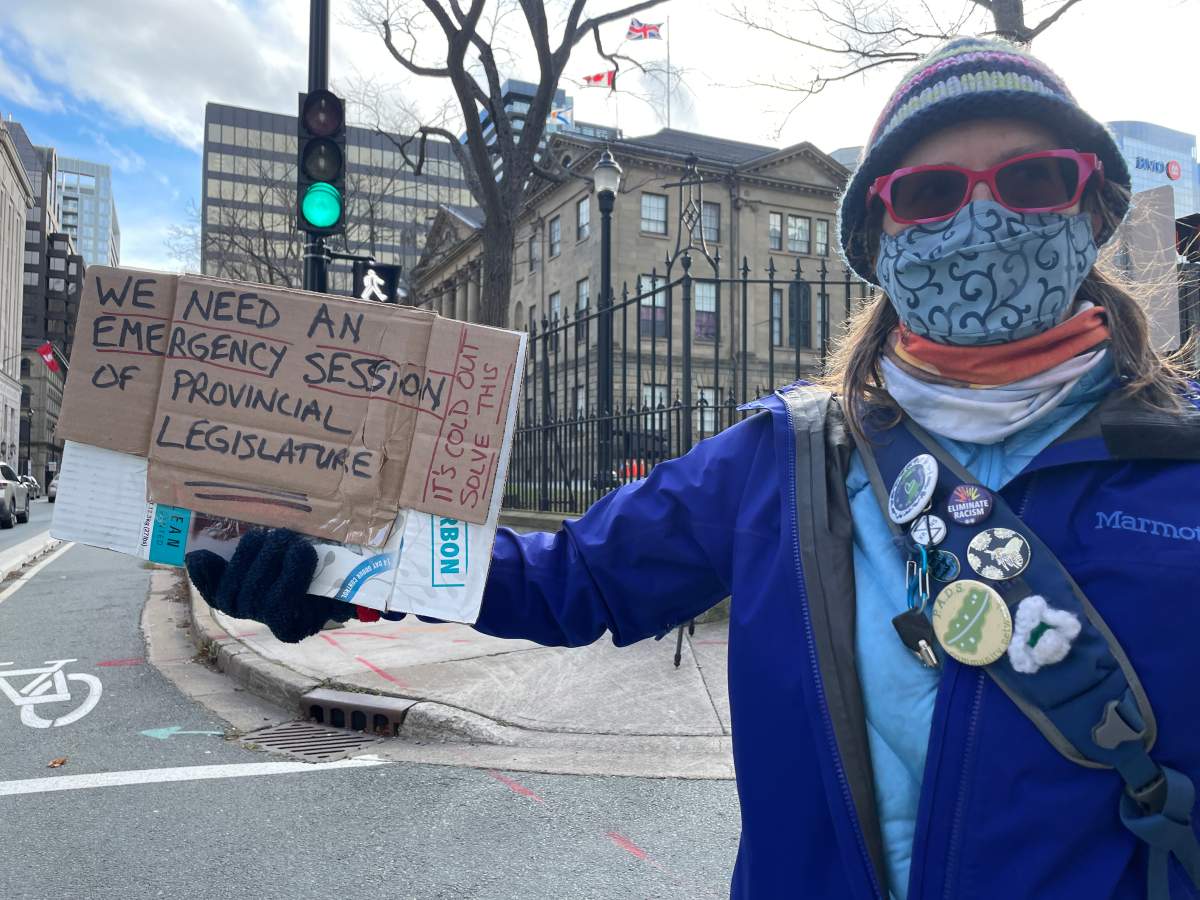Dozens of housing advocates gathered outside Province House in downtown Halifax on Sunday, demanding swifter action be taken by the provincial government to address emergency lodging needs.

“We are trying to winterize the park but there’s not much we can do. We did not realize we would be here this long. We figured the government would eventually do something as soon as we took over the park to get us over there, and that has not been the case,” said Victoria Levack, a spokesperson with Permanent, Accessible, Dignified and Safer (PADS) Community Network.
Advocates say the Nova Scotia government should hold an emergency session of the legislature to discuss immediate housing options for the growing number of unhoused people still living in parks.
PADS is a community network that has been steadily advocating for safer and accessible housing, along with a moratorium on park evictions.

Get breaking National news
On Aug. 18, hundreds of people poured into Downtown Halifax to protest police-led evictions of unhoused people living in parks.
In the days that followed, the volunteer-led network was launched to aid the unhoused and displaced.
More than 100 days later, they’re still working with the broader community to support people without any housing options, other than sleeping outside in tents.
Halifax Regional Police have previously stated that health and safety concerns were the leading cause of encampment removals and they haven’t committed to a moratorium.

“If there are encampments that are formed because people have no other choice then what’s supposed to happen is those places are supposed to be supported, not evicted. That’s what the right to housing means,” said Asaf Rashid, a Halifax human rights lawyer.
Public outrage sparked Halifax Regional Council to fund emergency housing measures, such as temporary hotel stays. The municipality set a larger goal of erecting modular housing sites in Halifax and Dartmouth but those plans have been delayed after the city stated the original purchase plan fell through because the units weren’t suitable.
“They could have just bought the right ones in the first place, or convert old buildings that are not being used into emergency shelters,” Levack said.
An update to the city’s modular housing plans is expected early this week, and the provincial government will support the sites with social support services. The province has also voted in favour of other housing measures, such as extending the temporary rent cap and passing a longstanding request by the municipality for inclusionary zoning.
But supporters say those measures don’t address the immediate needs of those hit hardest by a lack of affordable and accessible housing who are left to endure the elements.
- Daylight saving time 2026: Here’s when you should set your clocks forward
- Conservative MP searches for ‘antifa’ in federal government, Canadian Armed Forces
- Liberals survive confidence vote as House passes budget implementation bill
- Canadians stranded in Puerto Vallarta after violence disrupts flights home to Edmonton









Comments
Want to discuss? Please read our Commenting Policy first.